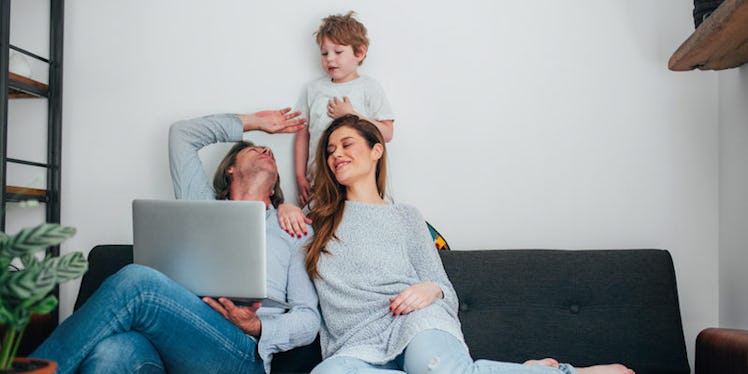
How Social Media Has Permanently Changed Being A Parent For Better Or Worse
Sometimes it seems like one's entire life changes when he or she becomes a parent, but these days one thing stays the same -- we still spend loads of time scrolling and sharing on social media.
However, while parenting doesn't affect our love of social media, social media does change the way we parent. Being a parent thirty years ago compared to now is a very different experience.
You're no longer alone.
The most powerful thing social networks have done for parents is connect them.
New parents used to feel isolated. They could phone their mom and dad to ask questions about the weird rash or teething, but that's about it.
Now you can reach other people who not only have the same worries and troubles, but also the same insecurities and same feelings of helplessness. Talking with people in the same situation can make you feel empowered and consoled.
I remember chatting with one mom from Canada while on my maternity leave. We found each other online in one of those specialized networks for parents and became pen pals.
We had many things in common, so we talked about almost everything, not exclusively parenting. We understood each other as no one else in our families did because we were on the same page in our lives.
It helped me enormously while dealing with my postpartum depression, and I'm thankful we were able to connect with each other.
You overshare.
Family albums have always been a source of utter embarrassment, but back then they were kept in a cupboard and only saw the light of day on special occasions.
Today's embarrassments are documented for all to see. We enthusiastically share every awkward stage of our children's lives with the public.
Our poor kids will have to live with the fact that anyone can easily Google them and see all of these cringeworthy pics.
Parenting is often romanticized.
We tend to only share the sunny sides of our lives as we put a rose-tinted filter on our videos and images.
It makes us feel better about ourselves for the moment, but in the long run, it nurtures guilt.
Seeing my friend's daily posts about how they played Monopoly with the entire family or how her kid helped her at the kitchen the other day makes me feel lazy and guilty.
The guilt leads to more social media pretense, and you enter a vicious circle -- sugarcoating the reality of parenting to the world.
There's more uncertainty.
In many ways, social networks have made parenting harder. We have new troubles: cyberbullying, predators and other online horrors.
Add in worrying about tech tantrums, moderation, good manners and homework assignments ignored because of Instagram addiction and you can see why social media can be a concern for parents.
There's new questions with no real answers.
What is the appropriate age to give your child a smartphone? Is it rude to take a tablet to a restaurant and give it to your children in order to entertain them? Do you ask your child for their passwords and account details or do you respect their privacy?
We don't have fitting answers inherited from our parents because our parents didn't have these dilemmas to begin with. Now we have to come up with our own solutions and listen to our instincts on the right way to handle our kids and social media.
And really, with technology's current growth, it seems whatever we come up with will be irrelevant and hopelessly outdated by the time our children face their own parenting dilemmas.
And that's how it goes. Each generation of parents faces its own challenges, unable to rely on the wisdom those before them.
When people talk about how technology has changed the world, they think about the children and how they're different now. However, digital communication has changed us as parents too.
Let's just hope we can use social media to make modern parenting better, not worse.